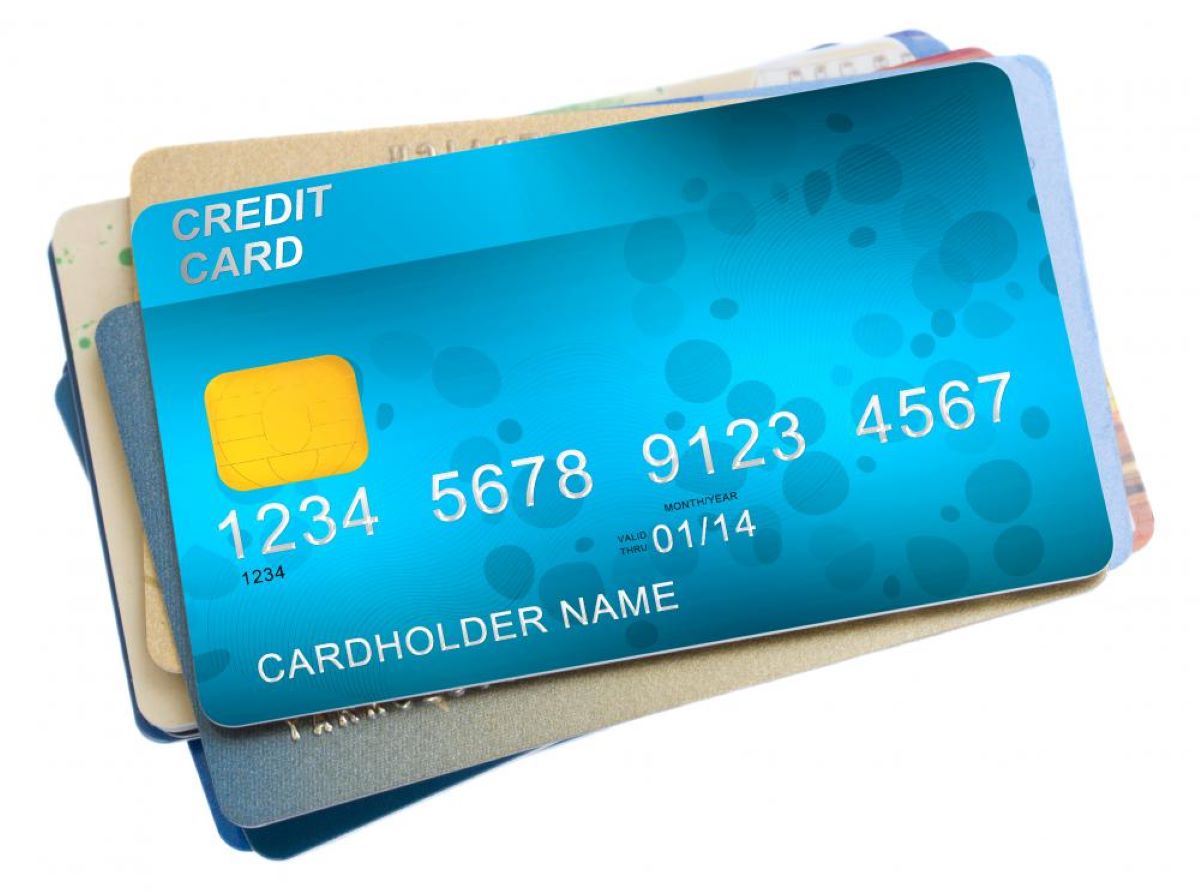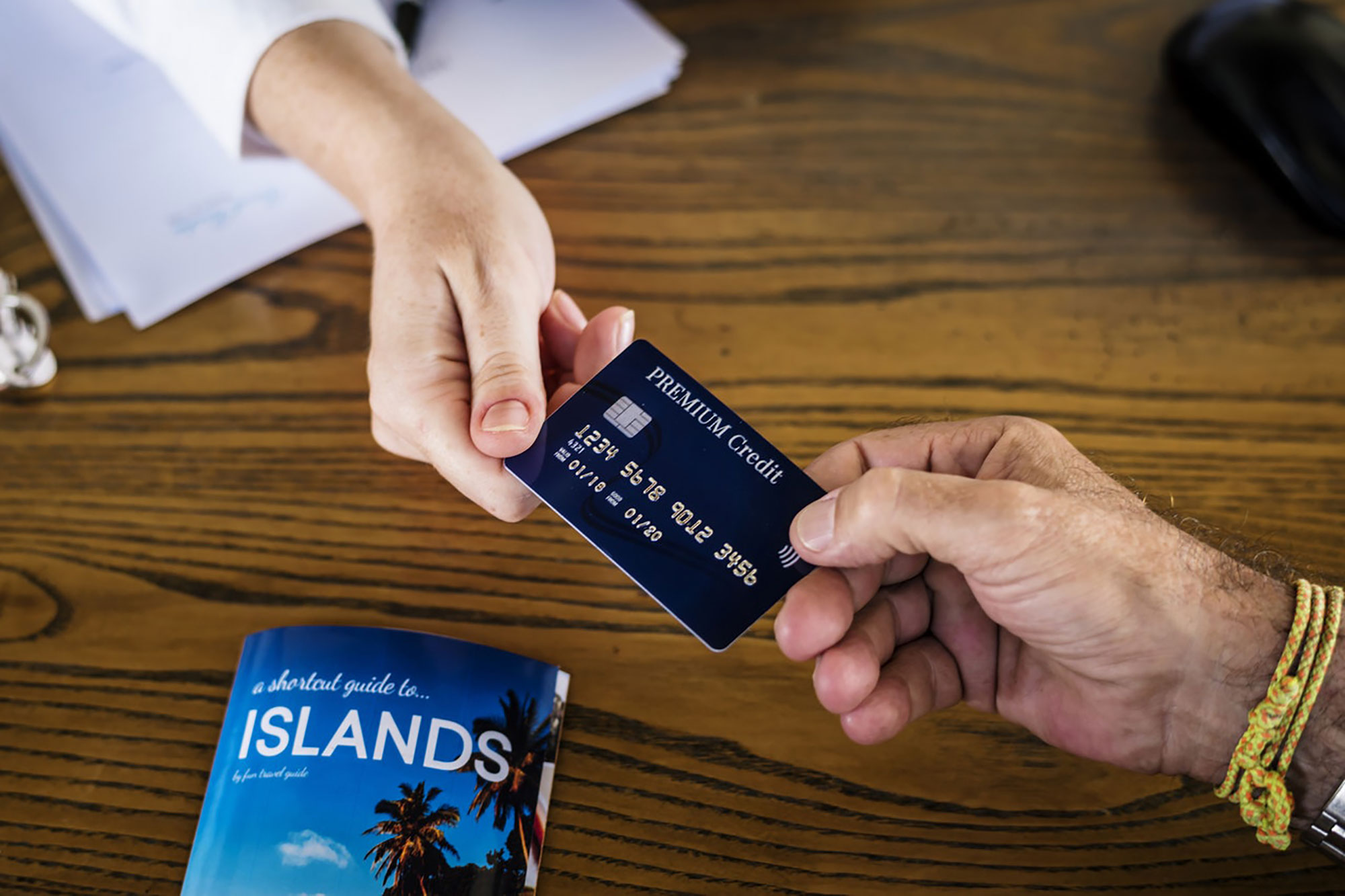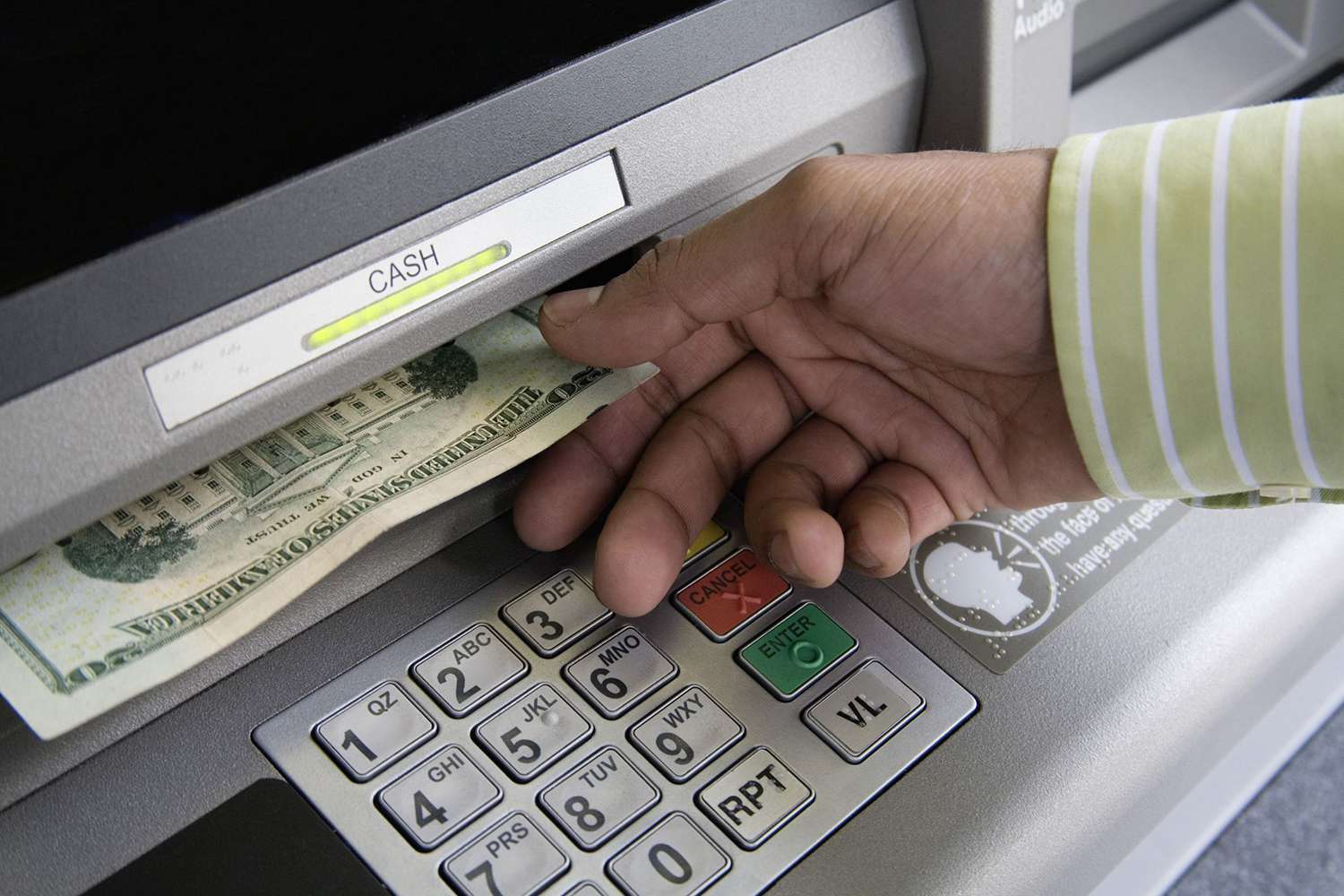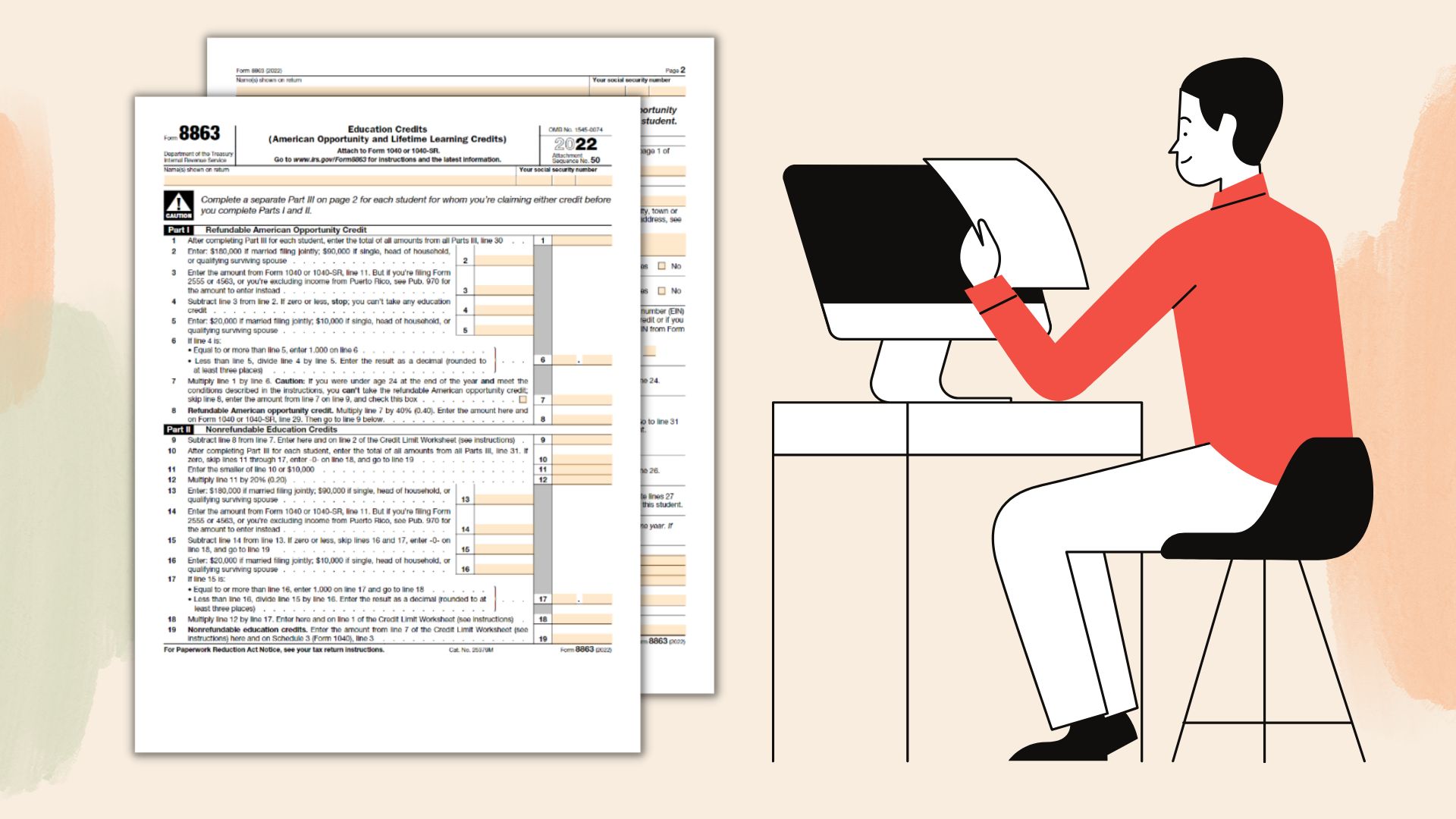

Finance
What Does Credit Limit For Cash Mean
Published: January 12, 2024
Learn the significance of credit limit for cash and how it impacts your personal finance. Discover how managing this crucial aspect can shape your financial journey.
(Many of the links in this article redirect to a specific reviewed product. Your purchase of these products through affiliate links helps to generate commission for LiveWell, at no extra cost. Learn more)
Table of Contents
Introduction
When it comes to managing your finances, understanding your credit limits is essential. It determines the maximum amount of funds you can borrow or utilize from a line of credit. While most people are familiar with credit limits for purchases, there is another type of credit limit that often goes unnoticed— the credit limit for cash.
Cash credit limit is a specific threshold set by financial institutions on credit cards and other forms of credit to restrict the amount of cash you can withdraw. This limit is different from the overall credit limit and is designed to control the amount of cash you can access from your credit line.
In this article, we will explore the concept of cash credit limits, their importance, and the factors that can affect them. We will also discuss how financial institutions determine your cash credit limit and provide some tips on effectively managing it.
Whether you are a frequent cash user or an occasional ATM visitor, having a good understanding of your cash credit limit can help you make informed decisions, avoid unnecessary fees, and maintain a healthy financial profile. So, let’s dive in and explore the world of cash credit limits.
Understanding Credit Limits
Before diving into the specifics of cash credit limits, it is important to have a clear understanding of credit limits in general. A credit limit is the maximum amount of money that a lender or financial institution allows you to borrow or spend using a line of credit, such as a credit card or a personal loan.
When you open a new credit account, the lender assigns you a credit limit based on several factors, including your credit history, income, and financial stability. This limit serves as a safeguard for both the lender and the borrower. It ensures that borrowers do not exceed their ability to repay and helps lenders manage the risk of potential defaults.
Your credit limit not only determines the maximum amount you can borrow but also has a direct impact on your credit utilization ratio. This ratio is a calculation of the amount of available credit you are currently using, expressed as a percentage. For example, if you have a credit limit of $10,000 and have used $3,000, your credit utilization ratio would be 30%.
A low credit utilization ratio is generally considered favorable as it indicates that you are using credit responsibly and have a good level of available credit. On the other hand, a high credit utilization ratio can negatively impact your credit score and make future borrowing more challenging.
It is important to note that credit limits are not set in stone. Financial institutions may periodically review your credit history and adjust your credit limit accordingly. This means that your credit limit can be increased if you have demonstrated responsible borrowing behavior, or it can be decreased if there are any negative changes to your financial profile.
Now that we have a solid understanding of credit limits, let’s delve into the specific concept of cash credit limits and their significance in managing your finances.
Definition of Cash Credit Limit
A cash credit limit refers to the maximum amount of cash that you can withdraw from your credit line. It is a separate limit that is imposed by financial institutions on top of the overall credit limit. While the overall credit limit determines the total available funds you can utilize for purchases, the cash credit limit focuses specifically on cash withdrawals.
When you use your credit card to withdraw cash from an ATM or receive cash advances, you are essentially borrowing money against your credit line. The cash credit limit sets a boundary on the amount you can withdraw in cash. This limit can vary from one card issuer to another and is usually a percentage of the overall credit limit.
For example, if you have a credit limit of $5,000 and a cash credit limit of 20%, you would be able to withdraw up to $1,000 in cash.
It’s important to note that cash advances typically come with additional fees and higher interest rates compared to regular credit card purchases. This is due to the increased risk associated with cash transactions and the immediate availability of funds. Therefore, it is generally recommended to use cash advances sparingly and for emergencies only.
Cash credit limits are not exclusive to credit cards. Other forms of credit, such as personal loans or lines of credit, may also have a designated cash credit limit. This limit determines the amount of cash you can withdraw from your credit line or account.
Financial institutions impose cash credit limits to mitigate the risk involved with cash transactions and to ensure responsible borrowing practices. By setting a specific limit for cash withdrawals, they can monitor and restrict excessive usage that may indicate financial instability or potential delinquencies.
Understanding the definition of cash credit limits is crucial in managing your finances effectively. It allows you to make informed decisions about cash withdrawals, consider the associated costs, and stay within the set limits to maintain a healthy financial profile.
Importance of a Cash Credit Limit
While credit limits for purchases are more commonly known and discussed, the importance of a cash credit limit should not be overlooked. Here are a few key reasons why understanding and managing your cash credit limit is crucial:
- Controlled Cash Flow: A cash credit limit allows you to have better control over your cash flow. By setting a maximum limit on cash withdrawals, financial institutions help prevent excessive spending that can lead to financial strain. This can be especially important in situations where you may be tempted to withdraw large amounts of cash impulsively.
- Budgeting and Financial Planning: Having a cash credit limit helps you establish a budget and plan your finances effectively. By knowing the maximum amount you can withdraw in cash, you can allocate funds for specific expenses and avoid overspending. It encourages responsible financial behavior and helps you stay on track with your financial goals.
- Emergency Funds: Cash credit limits can serve as a safety net in times of emergencies. While it is generally recommended to have a separate emergency fund, having access to cash from your credit line can provide temporary relief when unexpected expenses arise. It can cover immediate needs while you work on securing more permanent funds.
- Fraud Protection: Setting a cash credit limit helps protect you from potential fraudulent activities. If your credit card or account information is compromised, a cash credit limit can limit the amount that can be withdrawn in cash by unauthorized individuals. This helps minimize financial loss in the event of fraud or theft.
- Improved Credit Score: Responsible management of your cash credit limit can have a positive impact on your credit score. By staying within your specified cash credit limit and managing your cash withdrawals wisely, you demonstrate financial discipline and responsible borrowing behavior. This can boost your creditworthiness and potentially lead to better borrowing opportunities in the future.
Understanding the importance of a cash credit limit can help you make informed financial decisions, avoid excessive cash withdrawals, and maintain a healthy financial profile. By recognizing its role in budgeting, emergency planning, and overall financial stability, you can use your cash credit limit to your advantage and achieve greater financial success.
Factors Affecting Credit Limits for Cash
Financial institutions consider several factors when determining credit limits for cash withdrawals. These factors help lenders assess the borrower’s creditworthiness and ability to repay the funds. Here are some of the key factors that can influence the credit limits for cash:
- Credit History: One of the most significant factors in determining your cash credit limit is your credit history. Lenders review your credit report to assess your past borrowing behavior, payment history, and credit utilization. A strong credit history with timely payments and low credit utilization ratio indicates responsible financial management, which can lead to higher cash credit limits.
- Income and Financial Stability: Financial institutions consider your income level and overall financial stability when assessing your cash credit limit. A higher income and stable employment indicate a greater ability to repay borrowed funds. Lenders may offer higher cash credit limits to individuals with a more secure financial position.
- Overall Credit Limit: The credit limit on your credit card or line of credit can also affect your cash credit limit. Some lenders may set the cash credit limit as a percentage of the overall credit limit. If you have a higher overall credit limit, you are likely to have a higher cash credit limit as well.
- Debt-to-Income Ratio: Lenders often examine your debt-to-income ratio, which is the ratio of your monthly debt payments to your monthly income. A lower ratio indicates greater financial stability and a higher capacity to manage additional debt. A favorable debt-to-income ratio can result in a higher cash credit limit.
- Credit Score: Your credit score is a numerical representation of your creditworthiness. It is based on various factors such as payment history, credit utilization, length of credit history, and types of credit accounts. A higher credit score generally correlates with a higher cash credit limit, as it reflects responsible financial behavior.
It’s important to remember that these factors may vary depending on the specific lending institution and their internal policies. Different lenders may prioritize certain factors over others when determining credit limits for cash. It’s advisable to maintain a good credit history, stable income, and responsible borrowing habits to increase your chances of obtaining a higher cash credit limit.
How to Determine Your Credit Limit for Cash
Determining your credit limit for cash withdrawals is primarily the responsibility of the financial institution or credit card issuer. They consider various factors, as mentioned earlier, to assess your creditworthiness and ability to handle additional debt. While you may not have direct control over the determination process, there are a few steps you can take to influence and understand your credit limit for cash:
- Maintain a Healthy Credit History: One of the most effective ways to increase your credit limit for cash is by maintaining a good credit history. Make timely payments, keep your credit utilization low, and avoid negative marks on your credit report. Demonstrating responsible financial behavior over time can often lead to higher credit limits.
- Earn a Higher Income: Financial institutions take into account your income level when determining credit limits for cash. Earning a higher income can improve your chances of receiving a higher credit limit. If possible, work towards increasing your income through promotions, career advancements, or alternate sources of income such as side hustles.
- Request a Credit Limit Increase: If you have a good credit history and have been responsible with your finances, you can contact your credit card issuer and request a credit limit increase. Provide any supporting documents that showcase your financial stability, such as recent pay stubs or employment information. Keep in mind that approval of a credit limit increase is solely at the discretion of the lender.
- Manage Your Existing Credit Card Usage: Responsible management of your existing credit card usage can also positively impact your credit limit for cash. Make regular payments on time, keep your credit utilization low, and avoid maxing out your credit cards. Lenders are more likely to grant higher credit limits to those who demonstrate the ability to responsibly handle credit.
- Consider a Different Financial Institution: If you feel that your current credit limit for cash is not meeting your needs, you may consider exploring credit cards or lines of credit from different financial institutions. Each institution may have different criteria and offer varying credit limits. Researching and comparing different options can help you find a provider that aligns with your financial goals and offers a higher cash credit limit.
Remember that while you may have some influence over your credit limit for cash, ultimately it is the decision of the financial institution. Prioritize maintaining a good credit history, responsible financial management, and open communication with your credit card issuer to increase your chances of receiving a higher credit limit for cash.
Managing Your Credit Limit for Cash
Effectively managing your credit limit for cash is crucial for maintaining a healthy financial profile and avoiding unnecessary debt. Here are some tips to help you manage your cash credit limit responsibly:
- Create a Budget: Establish a budget that includes your cash withdrawals. Determine how much cash you actually need for your expenses and allocate funds accordingly. This will help you stay within your cash credit limit and avoid overspending.
- Track Your Cash Transactions: Keep a record of your cash withdrawals and monitor your transactions regularly. This will help you stay aware of how much cash you have used and how close you are to reaching your cash credit limit. You can use apps or financial tools to track your spending and maintain control over your cash flow.
- Avoid Frequent Cash Advances: Cash advances come with higher fees and interest rates compared to regular credit card purchases. To avoid excessive costs and potential debt, try to limit your cash withdrawals to true emergencies. Explore alternative methods of payment or consider using debit cards for everyday cash needs.
- Pay Off Cash Advances Promptly: If you do need to use a cash advance, make it a priority to pay off the debt as soon as possible. Interest on cash advances starts accruing immediately, so the longer you carry the balance, the more you will end up paying. Focus on clearing the cash advance portion of your credit card balance before tackling other expenses.
- Communicate with Your Credit Card Issuer: If you find that your current cash credit limit is not sufficient for your needs, reach out to your credit card issuer and inquire about a possible increase. Provide them with relevant information such as increased income or a good payment history. However, always exercise caution and avoid requesting an increase if it is not necessary or if you are not confident in your ability to manage a higher credit limit.
- Monitor Your Credit Utilization Ratio: Keeping an eye on your overall credit utilization ratio is important, as it impacts your credit score and overall creditworthiness. Aim to keep your credit utilization below 30% to maintain a healthy financial profile. Keeping your credit card balances low will also help ensure that you have enough available credit for emergencies or unexpected expenses.
- Regularly Review Your Credit Report: Monitor your credit report for any inaccuracies or discrepancies that may affect your credit limit for cash. If you notice any errors, report them promptly to the credit reporting agencies and work towards resolving them. A clean and error-free credit report can positively impact your creditworthiness and potentially lead to higher credit limits.
By implementing these strategies, you can effectively manage your credit limit for cash, maintain control over your cash flow, and avoid unnecessary debt. Responsible management of your cash credit limit will contribute to a positive credit history, financial stability, and a healthier overall financial outlook.
Conclusion
Understanding and managing your credit limit for cash is essential for maintaining a healthy financial profile. While often overshadowed by credit limits for purchases, the cash credit limit plays a crucial role in controlling your cash flow, budgeting, and emergency planning. By staying within your cash credit limit, you can avoid excessive spending, fees, and potential debt.
Financial institutions assess various factors, such as credit history, income, and overall credit limit, when determining your credit limit for cash. While you may not have control over the determination process, you can influence it by maintaining good credit, managing your existing credit cards responsibly, and requesting a credit limit increase if needed.
Effective management of your cash credit limit involves creating a budget, tracking your cash transactions, avoiding frequent cash advances, and paying off cash advances promptly. Regularly reviewing your credit report and maintaining a low credit utilization ratio are also crucial in managing your credit limit effectively.
Remember, your credit limit for cash should be treated as a financial tool rather than an opportunity for excessive spending. Proper management will not only help you avoid unnecessary debt but also improve your creditworthiness and financial stability.
By understanding the importance of a cash credit limit, being aware of its definition, considering the factors that affect it, and implementing strategies to manage it responsibly, you can effectively navigate the world of cash credit limits and maintain a balanced and secure financial future.














